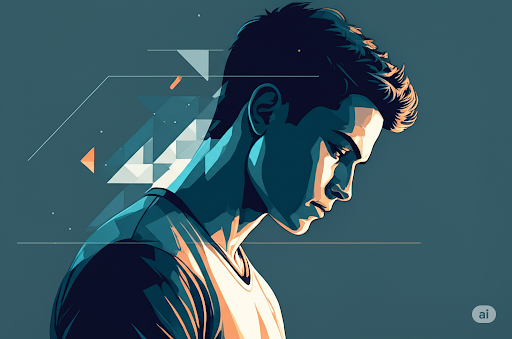Shattering the Stereotype
Erectile dysfunction (ED) has long been considered an issue exclusive to older men. However, this outdated belief is being increasingly challenged by a growing number of young men — including those in their 20s and 30s — who are experiencing ED. The rise in cases among younger males points to a broader, more complex problem that goes far beyond aging.
Contrary to popular opinion, ED in young men is not rare, nor is it always linked to physical illness. In many cases, it’s tied to lifestyle, mental health, or modern habits that impact the body and mind in subtle but powerful ways.
Understanding this shift is the first step to reducing shame, encouraging early intervention, and finding real solutions.
How Common Is ED Among Young Men?
Studies over the last decade show a surprising trend: up to 1 in 4 men under the age of 40 report experiencing erectile dysfunction. Some research even suggests this number may be higher, as many young men feel uncomfortable talking about the issue or don’t recognize it as a medical condition.
And the causes? In younger age groups, psychological factors tend to dominate, but physical issues are not off the table.
Quick Stats:
- A 2013 study in the Journal of Sexual Medicine found that 26% of new ED patients were under 40.
- Among these, nearly half had severe ED.
- The problem is growing, especially in the digital age.
What Causes ED in Young Men?
1. Performance Anxiety
The pressure to “perform” in bed, whether due to inexperience, self-consciousness, or unrealistic expectations from media, can trigger a cycle of anxiety and failure. This is one of the leading causes of ED in men under 30.
Signs include:
- Erections are fine during masturbation, but not with a partner
- Sudden onset of ED around new relationships
- Racing thoughts during intimacy
2. Porn-Induced Desensitization
Overexposure to internet pornography can cause the brain’s arousal system to become desensitized to real-life intimacy. This is known as porn-induced ED, and it’s increasingly common in the digital age.
Frequent porn use rewires the brain’s reward system, making it harder to respond to normal sexual cues.
3. Stress and Mental Health
Modern life is loaded with stressors — work pressure, financial worries, social media comparison — all of which affect mental health. Depression and anxiety are major contributors to ED, even in young, physically healthy men.
4. Lack of Sleep and Poor Diet
Men in their 20s and 30s often sacrifice sleep and nutrition due to busy schedules or lifestyle habits. Both are essential for testosterone production, vascular health, and energy — all critical for sexual performance.
Sleep deprivation alone can lead to lower testosterone and decreased libido.
5. Alcohol and Substance Use
Binge drinking, smoking, and recreational drug use all negatively impact blood flow, nerve sensitivity, and hormone balance. Even occasional substance use can trigger ED in some men.
6. Physical Health and Hormonal Imbalances
While less common in young men, conditions like low testosterone, obesity, type 2 diabetes, and cardiovascular issues can still occur. These often go undetected until symptoms like ED appear.
The Psychological Impact of ED on Young Men
For younger men, ED often triggers deep feelings of shame, embarrassment, and inadequacy. Many worry that something is “broken” or that they’re not man enough. This mindset can make the problem worse, creating a feedback loop of anxiety and avoidance.
Some consequences include:
- Avoiding relationships or intimacy altogether
- Fear of rejection
- Declining self-esteem
- Risk of depression
The truth is: You are not alone, and the problem is more common — and more treatable — than most people think.
How to Treat ED in Your 20s and 30s
Step 1: Identify the Root Cause
Understanding what’s behind your ED is the most important step. Keep track of:
- When ED happens (during sex, masturbation, or both?)
- Your mental state at the time (anxious, tired, relaxed?)
- Lifestyle factors (alcohol use, sleep patterns, stress level)
Step 2: Make Lifestyle Changes
- Exercise regularly to improve blood flow and reduce stress
- Eat a clean diet with lots of vegetables, whole grains, and lean protein
- Get 7–9 hours of sleep per night
- Reduce or eliminate porn use
- Avoid excessive alcohol, nicotine, and drugs
- Practice mindfulness or meditation to calm anxiety
Step 3: Consider Therapy
Seeing a psychologist or sex therapist can be life-changing for men with performance anxiety, past trauma, or self-esteem issues. Cognitive Behavioral Therapy (CBT) is highly effective for ED related to mental blocks.
Step 4: Try Natural Supplements (Cautiously)
As mentioned in Article 10, supplements like L-arginine, ginseng, and ashwagandha may support erection quality — but they should be used responsibly and ideally under guidance.
Step 5: Consult a Doctor
If the problem persists, a healthcare provider can test your hormone levels, check for hidden health issues, and offer treatment options. Medications may be useful in the short term, but they’re most effective when combined with lifestyle and psychological support.
Early Action = Long-Term Confidence
The earlier you take steps to address ED, the better your results. Many young men see complete recovery when they deal with root causes and make consistent lifestyle changes. It’s not a permanent condition — it’s a signal from your body that something needs attention.
It’s Time to Normalize the Conversation
Erectile dysfunction doesn’t mean you’re broken or less masculine — it means your body and mind are asking for help. The good news? Help is available, recovery is possible, and you’re definitely not alone.
The more we talk about ED in young men, the less shame exists — and the faster more men can return to a confident, healthy sex life.
